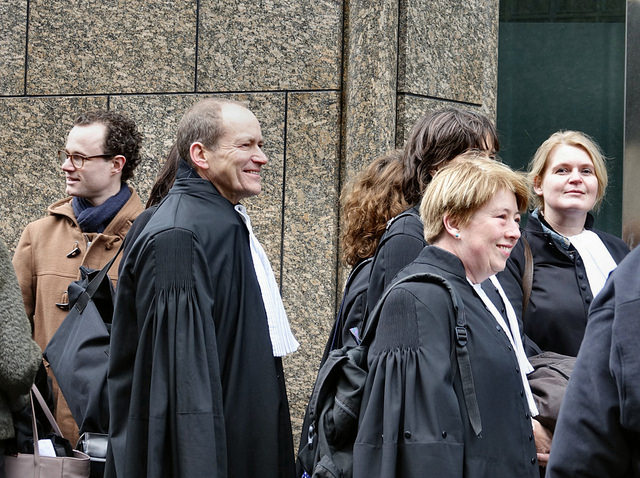Latest blog articles
-
The entire Faculty community helped to find names for our tutorial rooms. Naming them ensures we are better able to find them. It also makes clear it is the Law Faculty making use of our building.
-
Legislative enactments and court decisions, together with social-historical events, provide the causal mechanisms that enable scholars to trace the evolution of ownership paradigms in different jurisdictions. In addition, shifts in ownership paradigms result from the circulation and flow of legal...
-
Last week we welcomed a large number of first year students at our Faculty. At the beginning of this new academic year, we were also very happy to host our alumni at the annual alumni day.
September is always an important month at University. Next to the official opening of the academic year (at... -
Flashy guys who work on the Zuidas, live in luxury penthouses and tear around in the latest Teslas and Jaguars – and all at the expense of ‘the ordinary man’ who they laughingly charge exorbitant hourly rates. This image of lawyers appears to be fairly persistent. But it has very little to do with...
-
The European Union (EU) faces challenges after the results of the United Kingdom (UK) European Union membership referendum that was held on June 23, 2016. Yet, Brexit is not the first challenge faced by the EU. Three points invite for reflection on Brexit and the future of the EU.
-
Fred Rodell, the once revered Yale Law School professor and the “bad boy of American legal academia” wrote that “[t]here are two things wrong with almost all legal writing. One is its style. The other is its content.” His harrowing words acutely capture my conflicting relationship with (legal)...
-
Can Member States prohibit pupils from attending education abroad, simply on the belief that it might hamper the integration of the children into society? But what of possible justification grounds?
-
Can Member States of the EU prohibit pupils from attending education abroad, simply on the belief that it might hamper the integration of these children into society? If this sounds extreme, read on.
-
In the 4th December referendum, Italy rejected the constitutional reforms promoted by the Renzi’s government. As a consequence of the “No” vote, the Prime Minister decided to resign. While the vote was influenced primarily by internal factors, the result may open a period of uncertainty for both...
-
Published on LBM. Here is a fun word that you may have come across recently: Kakistocracy. Based on the Greek word kakistos (meaning “the worst”), kakistocracy is a system of governance run by the least qualified, most “deplorable” citizens that the State has to offer.








